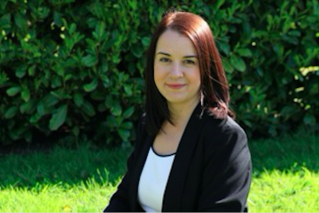MEDICS responsible for tackling health inequalities in Barnsley have warned the ‘stark’ picture is not improving - and local leaders are set to come together next week to plan how to reverse the trend.
Life expectancy at birth for males is 77.1 years - a reduction of 0.8 years in just 12 months - while females register a slightly higher average of 81.1 years, which is also lower than the previous 81.8, according to the Office for National Statistics (ONS).
Meanwhile, national rates of 79.1 for males and 83 for females have been confirmed in a report which will be discussed by Barnsley Council’s overview and scrutiny committee on Tuesday.
Representatives from the council’s public health team, the South Yorkshire Integrated Care Board and Barnsley Hospital will be on hand to field questions from councillors.
Barnsley males can expect 55.9 years of good health in their lifetimes, while women fare much better with 60.1 years, however they are both well below the national averages of 62.6 and 63.1 years respectively.
A council report said: “This presents some stark truths about the gap in health outcomes, including people in Barnsley experiencing ill health sooner and for longer in than other parts of the UK, with 19 years’ difference in male healthy life expectancy between Barnsley and best-performing Rutland.
“Things aren’t improving - trends show a recent pre-pandemic reduction in both measures, which should cause the alarm bells to ring.
“They also show a persistent gap across both measures between Barnsley and both region and country - a gap that appears to be widening, especially in men.
“These differences represent underlying and undue suffering for people, families and communities, suffering which all parts of the health, care and wider system can do more to address.
“They also represent a disutility for all sectors and development ambitions.
“Beyond the suffering, they cause loss of productivity in school and work, and a disease burden that heightens the need for care services which already lack capacity and resource.
“Health inequalities affect all of us in one way or another.
“It is not a concept that is unique to a handful of ‘hard-to-reach’ groups, but has a spectrum of impact across the whole population.
“Whilst many of the causes of health inequalities are more readily addressed through shifts in national policy, investment, and infrastructural changes, there are things we are doing locally, and we can do a lot more.
“This data represents real people across the country and are as true for Barnsley as anywhere else.
“Underneath these rather bleak headlines, of life expectancy and healthy life expectancy falling and affecting the most deprived more, is a huge burden of disease, loss of productivity and need for health and social care services.
“In many ways, the challenge that inequalities present and need to address them is greater for Barnsley than the average area of the country - we are the 38th most deprived local authority in England.”
Health think-tank the Nuffield Trust said there is a ‘postcode lottery’ for health - and called on the government to address disparities in healthcare, provision and overall health guidance.
Office for National Statistics figures show 7.5 per cent of residents in Barnsley said they were in ‘bad or very bad’ general health in the 2021 census - one of the highest proportions in Yorkshire and the Humber.
Sally Gainsbury, senior fellow at the think-tank, highlighted the impact socio-economic factors had on people’s health.
She said: “The role of socio-economic inequalities was often overlooked in health inequalities policy in the decade up until the pandemic.
“NHS England needs to follow through with their new focus on economic deprivation, as well as other, often related, drivers of health inequalities such as racial discrimination and social exclusion.
“We look forward to the government giving these issues the attention they deserve in the long-delayed white paper on health inequalities.”




























